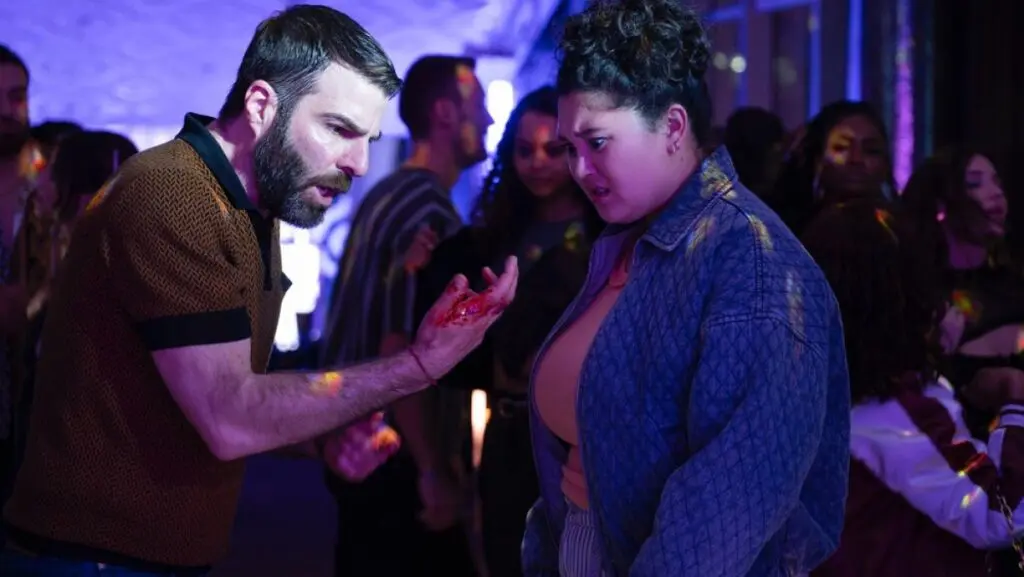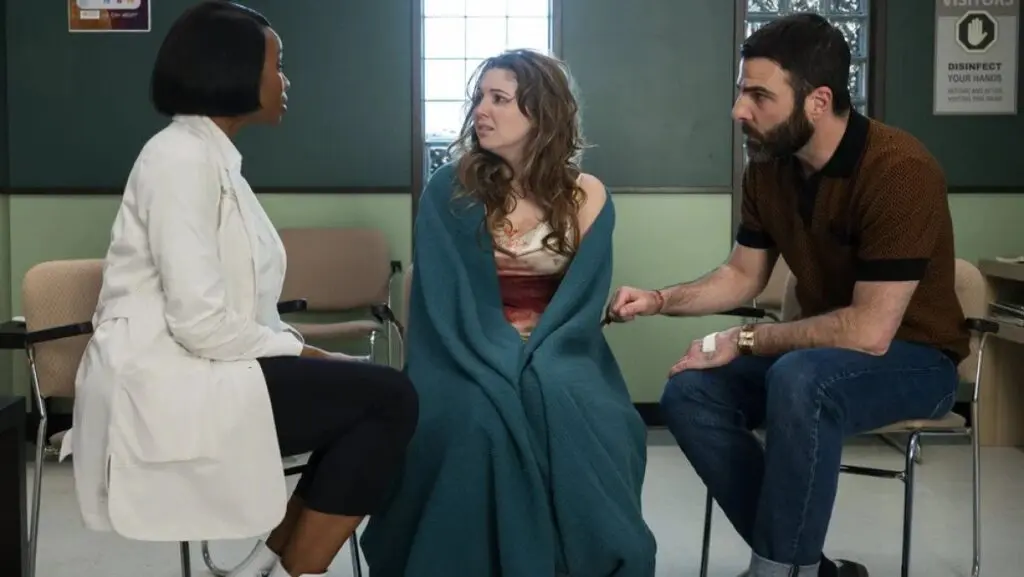Summary
Brilliant Minds has some good ideas in Episode 4, “The Killer Bride”, but it’s a mixed effort overall and strains credulity to breaking point.
The network TV landscape loves “unconventional” doctors, but there’s only so far you can push the idea before you strain credulity to breaking point, and I think Brilliant Minds reaches that limit in Season 1, Episode 4, “The Killer Bride”.
I still liked the episode, don’t get me wrong. But taking patients on impromptu road trips – which Dr. Wolf has done twice this season, with Harold in Episode 1 and Wyatt in Episode 3 – is one thing. Popping MDMA to get into a patient’s headspace is a bit of a reach. “It’s nothing I haven’t done before,” Wolf tells the interns at one point. You don’t say!
This is the A-plot in “The Killer Bride”. The B-plot brings back the John Doe patient from Episode 2, and, as usual, spares a little time for character-building among the interns, flashbacks to Wolf’s past, and Carol’s marital woes. Let’s get on with it.
The Killer Bride
The A-plot is a weird one. After a cold open depicting a loving couple on their wedding night indulging in a little pill-popping, it’s a bit of a shock to see the bride, Bridget, stumble into Bronx General covered in her husband’s blood. She stabbed him for reasons she can’t recall, which is totally out of character, so Wolf sets about retracing her steps all too accurately with the aid of the pills.
To this end, Oliver takes Dana along as a babysitter. This feels like a waste to me. The interns haven’t exactly been thoroughly explored thus far, but their involvement in Wolf’s mad-scientist practices has generally illuminated a little more about them. That’s not the case here; Dana is literally just Wolf’s babysitter as he becomes increasingly unhinged on the MDMA, which turns out to have been dangerously laced with PCP.
It’s a laugh seeing Wolf dancing and sweating like a maniac, but Episode 4 wants to have its cake and eat it, too. He’s still working through the medical conundrum even while high as a kite, which feels a bit ambitious. He also breaks some dude’s nose for making an unwanted move on Dana, which is a nice gesture but a bit over-the-top for a doctor. It never gets mentioned again, either.
Nichols Is the Voice Of Reason
I do like that it’s Dr. Nichols who has to remind Wolf that he’s behaving erratically, and that crossing the line like this doesn’t make him a good doctor or a good mentor to the interns. Wolf’s implausible success rate when he goes off the rails has given him a false idea that whatever he thinks is best invariably will be, but Nichols punctures that illusion. Even though Wolf got to the bottom of things with Bridget, his methods are still alarming, and that’s the personal takeaway.
If there are going to be romantic connotations to this relationship, which I think there will be, Brilliant Minds is clearly in no rush to get to them. And that’s fair enough. Nichols is a pretty straight-laced guy – the needles in his car notwithstanding – and Wolf is a nutter. Any burgeoning romance is going to require a lot of work.
An Unhappy Ending and Wolf’s Past

Brilliant Minds | Image via NBC
While Wolf is tripping, he once again has recollections of his past that fill in the blanks for the viewers. Of particular note in “The Killer Bride” is the revelation that following his father’s separation from Muriel, he asked Wolf to move in with him.
There’s no indication that this is a sinister gesture. It’s a father, feeling wounded about his circumstances, offering his son an option. It isn’t, after all, a mandate for a child to live with their mother in the event of a parental separation. But Wolf’s father clearly didn’t think it through. The decision was selfish, putting Wolf in an impossible position. When he eventually turned him down, his father feigned understanding, but ever since Wolf has lived with the guilt of that decision having potentially contributed to his father’s death.
Bridget’s case is valuable for this insight alone, but I also respect that it has an utterly morbid conclusion. Wolf is able to figure out what happened to Bridget – a combination of stress, the drugs, and an untreated inherited condition called Maple Syrup Urine Disease (MSUD) caused her brain to swell and violent confusion to set in. She isn’t dangerous; she wasn’t in her right mind. But while she’s preparing to seek forgiveness from her new husband for almost killing him, he’s rushed back into surgery and dies on the operating table. The news crushes Dana, and indeed Bridget, who is led away in handcuffs.
Wolf and the interns can’t solve every problem after all.
John Doe
I was much less keen on the B-plot in Episode 4, which finds Ericka and Jacob trying to deal with a dilemma involving John Doe. Since nobody knows what’s wrong with him and his comatose condition never evolves, he’s due to shipped off to a long-term care facility, and not a particularly good one, where he’ll doubtlessly be lost in the system, his case never solved.
While he busies himself with Bridget, Wolf tasks Ericka and Jacob with coming up with a reason for him to stay at Bronx General. Since John Doe is in a coma, this is mostly an excuse for Ericka and Jacob to bond.
Jacob doesn’t come off well. He moans constantly about being called into work, doesn’t show much care for John Doe, and later gets caught kissing a nurse in a storeroom. His arrogance frustrates Ericka, who is morphing into a mini Dr. Wolf in real-time.
But Jacob’s embarrassment causes him to show a little humanity to John Doe, shaving him and wheeling him outside to get some sun. It helps him to open up to Ericka a little, and the clear hints of a romantic relationship are beginning to emerge when John Doe’s toes wiggle.
I have no idea what the interns did to bring John Doe out of his coma, and I don’t think the show does either. But either way, the toe wiggling and some slight eye movement suggest to Wolf that they did, indeed, figure something out. It’s surely not the end of his story, but it’s an excuse to keep him around for a bit longer. I just wish this developing connection between Ericka and Jacob could have been explored in a slightly different way.
RELATED:




